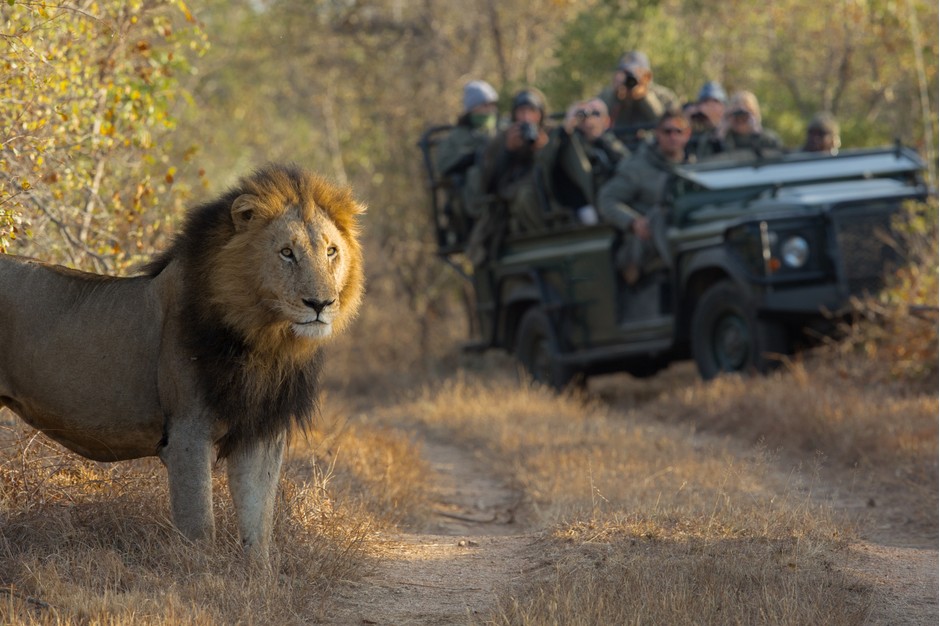Most lions flee, even from people on foot, but an attack is a possibility and knowing how to react could save your life.

Most lions flee, even from people on foot, but an attack is a possibility and knowing how to react could save your life.
Walking safaris are a relatively new concept, and lions still perceive humans on foot as a threat.
Conversely, as the biggest tourist attraction in many African wildlife reserves, lions have become quite habituated to vehicles and can be approached to within a few feet. Indeed, they often appear totally oblivious to them, despite the excited chattering of their occupants and the clicking of cameras.
Lion behaviour varies from region to region. When I first went to Zambia’s North Luangwa National Park, it was virtually devoid of tourists, so the lions weren’t habituated.
Many of our early encounters with lions there (while we were building a camp) developed into mock charges, which was disconcerting to say the least.
WHAT TO DO IF YOU ARE ATTACKED BY A LION
- Being charged by a lion when you are on foot is extremely frightening. It is difficult to stop yourself from bolting, but that is likely to prompt an attack. A lion charge is usually accompanied by a deep growling sound that reverberates through your very core.
- It is vital to stand your ground, perhaps retreating very slowly, but to continue facing the lion while clapping your hands, shouting and waving your arms around to make yourself look bigger. Most charges are mock charges, so you will usually be fine.
- And remember: hold your ground! Never run or turn your back.
HOW TO AVOID BEING ATTACKED BY A LION
- Do not approach too closely, especially in the case of mating lions or lionesses with cubs.
- Different circumstances trigger different behavior. During courtship, male lions are often extremely aggressive and should not be approached, even in a vehicle.

- A lioness with cubs is naturally protective and should be given lots of space. And being predominantly nocturnal, lions lose their inherent fear of humans at night and become much more dangerous and prone to attack.
- Be more cautious at night. Avoid camping in areas of high lion density – maintain a watch throughout the night if worried.

